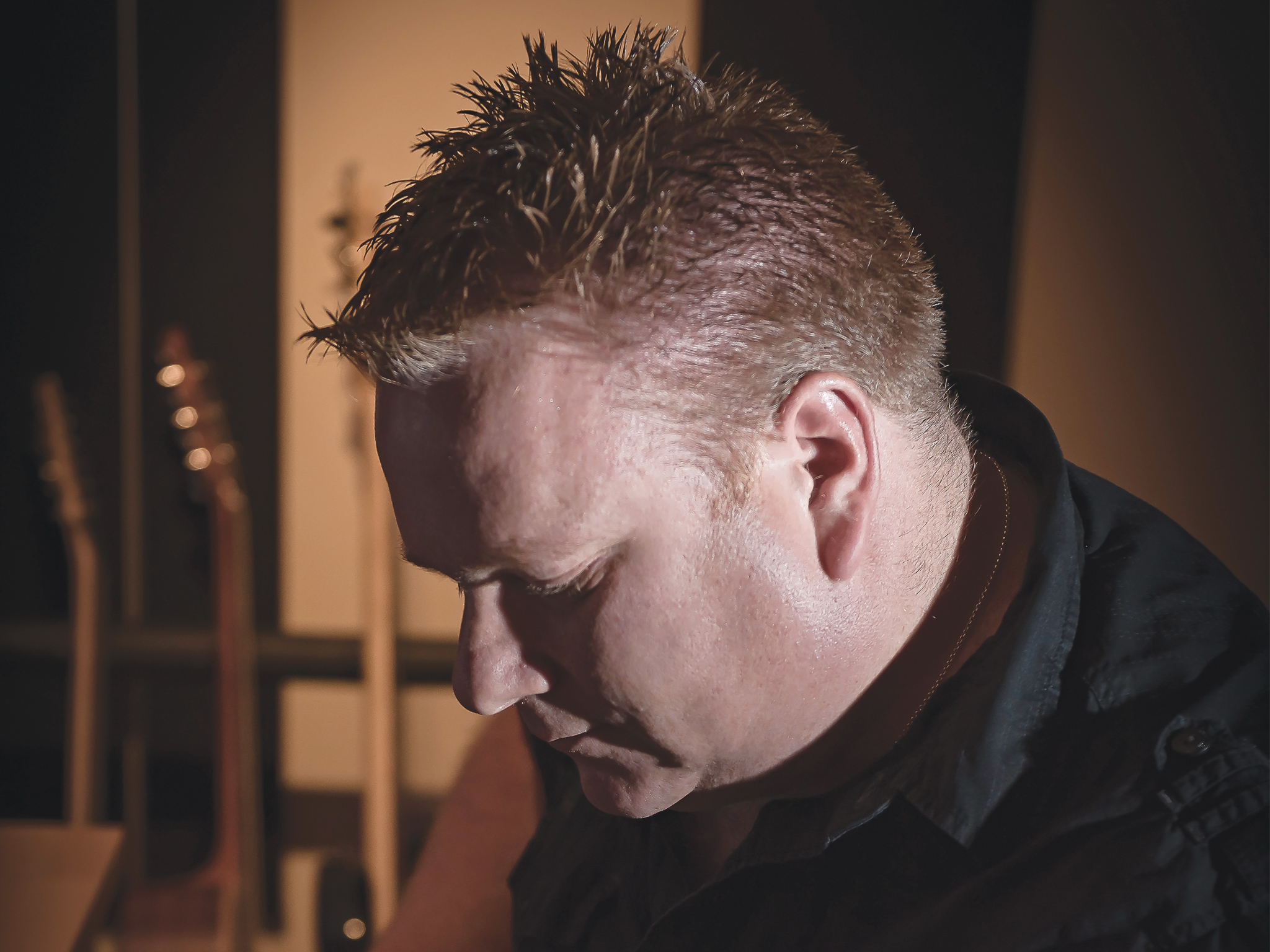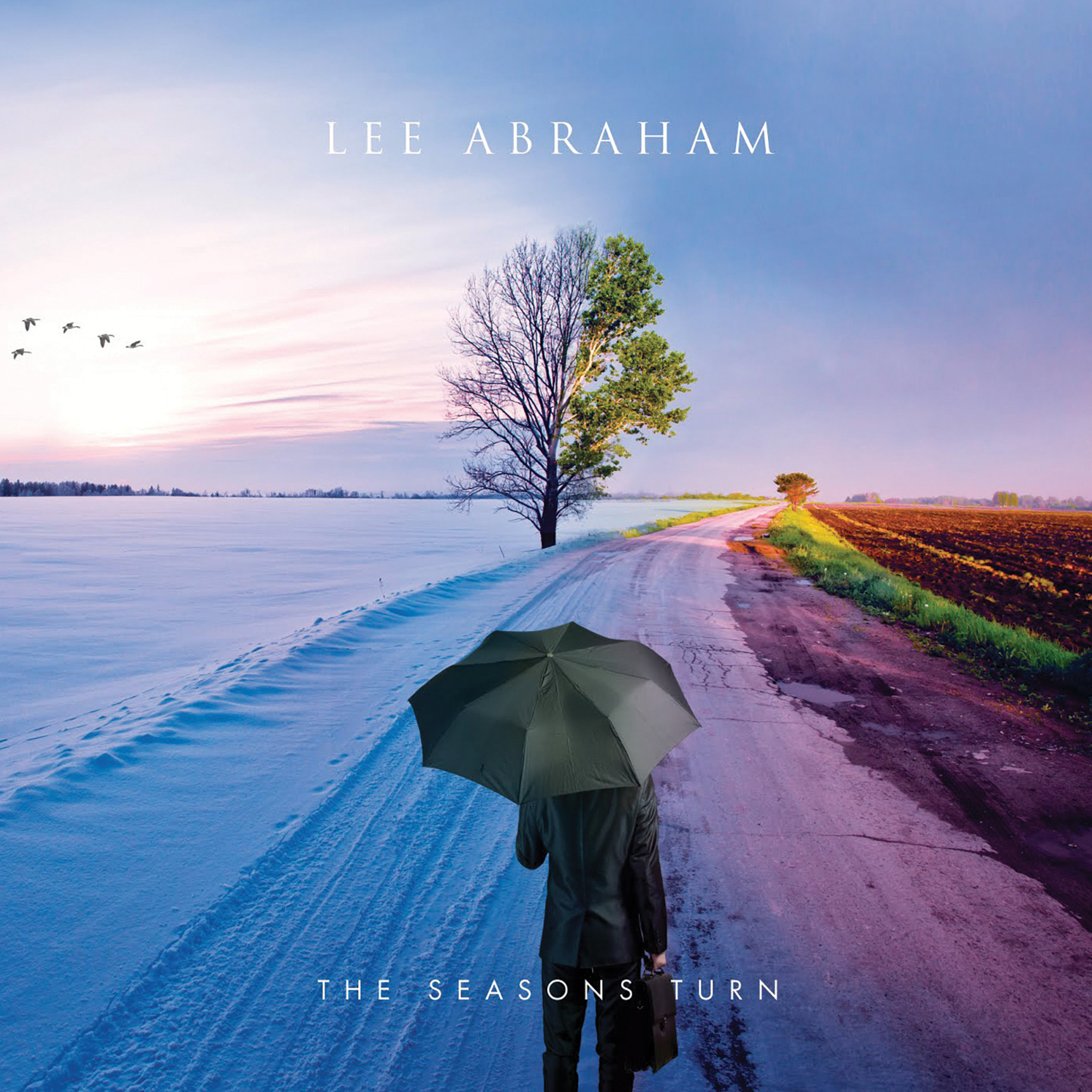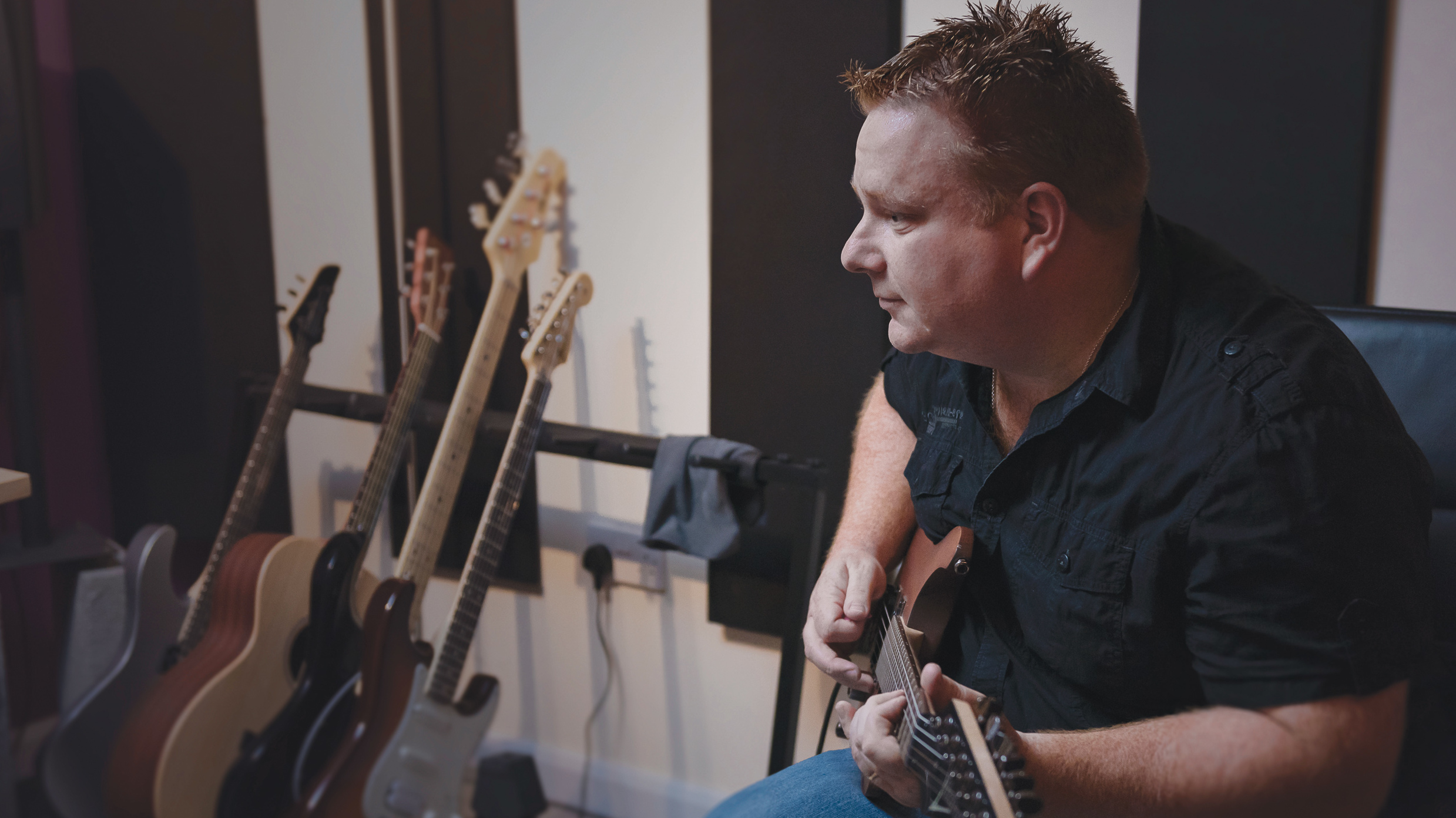Frustrated by the slow progress of his solo career during a four-year stint as Galahad’s bassist, Southampton-based multi-instrumentalist and producer Lee Abraham left the band in 2009. However, work on other artists’ recordings – including Sean Filkins’ well-received War And Peace & Other Short Stories – meant there were five years between 2004’s View From The Bridge and the follow-up Black & White, with another five-year gap before 2014’s Distant Days. Abraham’s priority is now his own music, with The Seasons Turn his fifth solo release.
“I’d done View From The Bridge and it really took off,” he recalls, “then the following year I joined Galahad and the four years I was with them was probably their busiest period. We did three trips to Poland, a European tour with Clive Nolan, RoSfest in the US and gigs in Canada, so between 2005 and 2009 I was chock-a-block with Galahad and didn’t have a lot of time to do anything else. It was only when I started to wind down my work with them that I started to write Black & White.
“After that I went headlong into producing for other people. The big project for me was Sean Filkins’ album, which took an age to complete, so by the time I got another album out it was 2014. From 2014 to the release of The Seasons Turn, I’ve been in the privileged position of not having anything else to take up my time and being able to concentrate on my own stuff.
“It’s about the passage of time I guess,” says Abraham of his hour-long concept album. “I don’t have a grand plan with lyrics because the music is the important bit for me – the lyrics come later and they’re whatever fits and whatever mood I’m in. It was only after two or three songs were written that I noticed there was a common theme of the passing of time.”

Among the five tracks on The Seasons Turn is a title track that clocks in at almost 25 minutes, which apparently wasn’t the original plan. “No, not at all!” laughs its creator. “I wrote the middle bit of the song first and that was meant to be a complete track. Then I wrote another song and it had the same kind of feel, so I changed the chorus chords so they were the same but played in a different way. I linked them together and before I knew it, I had a 20-minute track on my hands. Then I wrote an intro and there you have it, a 24-and-a-half-minute track. It might seem a little bit overblown but sometimes you have to do these things, don’t you?”
Abraham handles guitars, keyboards and backing vocals on the album, with guest vocalists Dec Burke (Darwin’s Radio, Frost*), Marc Atkinson (Riversea) and Mark Colton (Credo) among the contributors, alongside his regular band. “The first album where I used guests was Black & White in 2009,” Abraham says. “The previous album I’d done everything myself, apart from Credo’s Gerald Mulligan on drums – we’ve been playing together for 25 years in local bands.
“I was having a chat to a few people and two comments came back to me consistently: one was that I needed to work on my production skills, and the second was that I’m no singer. That was blunt advice from people I’d gotten to know in the industry. Those two comments kept coming back.
“With Black & White I knew I’d written songs that needed proper singers, so as subsequent albums have appeared, I’ve actually got into a rhythm now where I’ve found really good singers I like and I can actually tailor my writing to. I know straight away who each part is best suited for.”

With such a hands-on approach, Abraham’s favourite part of the process is a little surprising. “Over the years I’ve really come to love the editing and mixing side of things,” he says, “and I’m pretty precise with the recording sessions. Some people really hate tracking in the studio and want to get it done as quickly as possible, but to my ears, I always think they could probably have done it a bit better. I’d rather get stuff done as well as possible so that when it comes to editing and mixing, it’s fairly easy. When you have good-quality audio to work with, the editing and mixing is my favourite part.”
Despite becoming known as a bass player through his stint in Galahad, Abraham has long since delegated the bass duties on his own albums. “It was a hard thing to let go of,” he concedes, “but we did some gigs on the back of Black & White and I played bass at the first gig, then for the second gig, one of the guitar players couldn’t make it so
I had the choice of either finding another guitarist or playing the guitar myself and finding a bassist. My drummer Gerald Mulligan and my keyboard player Rob Arnold were playing in a local band and the bass player was a real prog fan, so
I mentioned to them that it might be easier if I played guitar, and they asked Alistair [Begg] and he was happy to step up. He played the gig and just fitted in brilliantly.
“When it came time to record Distant Days, I wanted to involve him and he was keen to be part of the core band. It takes a bit of pressure off me as well, and it gives Al a bit of scope to add his own bits. Plus I really enjoy playing guitar these days!”
The eye-catching cover for The Seasons Turn is by Paul Tippett, also known as Vitamin P. “He went to school with Gerald and they’d kept in touch,” explains Abraham. “When I needed a designer for View From The Bridge, he suggested Paul, who at the time was doing a lot of corporate stuff and was looking to get into album design. I think my album and Kino’s Picture were two of the first ones he did. We became firm friends and now I wouldn’t use anyone else…
“I’ve been thinking about doing some live gigs,” says Abraham, cautiously. “The ones we did after Black & White put me off – it was a lot of work to get rehearsals arranged and get everything in place. I don’t like leaving anything to chance because at the end of the day, the band are doing me a favour – I can’t afford to pay them much, so the least I can do is make sure we can get to and from the gigs. We played with one or two bands who soaked up all our soundcheck time and that puts you off doing it again.
“The guys have been pressuring me into going out so I’ve sent messages out to promoters I know who organise prog festivals, just to let them know I’d be interested in being on the bill in 2017. The album will have been out a year by then and hopefully planted in people’s heads.
“When I’ve been working on a prog album, I usually write some AOR tracks next,” he says. “I released an album about three years ago under the name of Arrival but it didn’t do too well, so I’m writing some songs – I just don’t think I’ll be releasing them commercially. There are a few I’ve put up on SoundCloud and I’ve promoted them through Facebook – it helps to keep the name out there.”
Having collaborated with the likes of John Mitchell, Jem Godfrey and Martin Orford in the past, we can’t help but wonder which artist Abraham would hire if the budget allowed.
“I’ve actually put some feelers out to work with FM singer Steve Overland,” he says. “To me he has the best AOR voice in the world. Next to Dream Theater and Porcupine Tree, I’ve probably seen FM the most times.
“From a guitar point of view, probably John Petrucci – his guitar work is so inventive. Most guitar players repeat themselves album after album, but I got Dream Theater’s latest double album The Astonishing and his guitar work is just perfect. His tone, the way he plays his solos and the way his rhythm parts just sit in the mix perfectly… I can’t even imagine the amount of work that went into that album, but everything he does is just mind-blowing.
“Gavin Harrison or Craig Blundell are great drummers but I’m happy working with Gerald, so I’d love to work with John Petrucci. But I think Steve Overland is more achievable.”
The Seasons Turn is out now on Festival Music. Visit Lee Abraham’s website for more.
